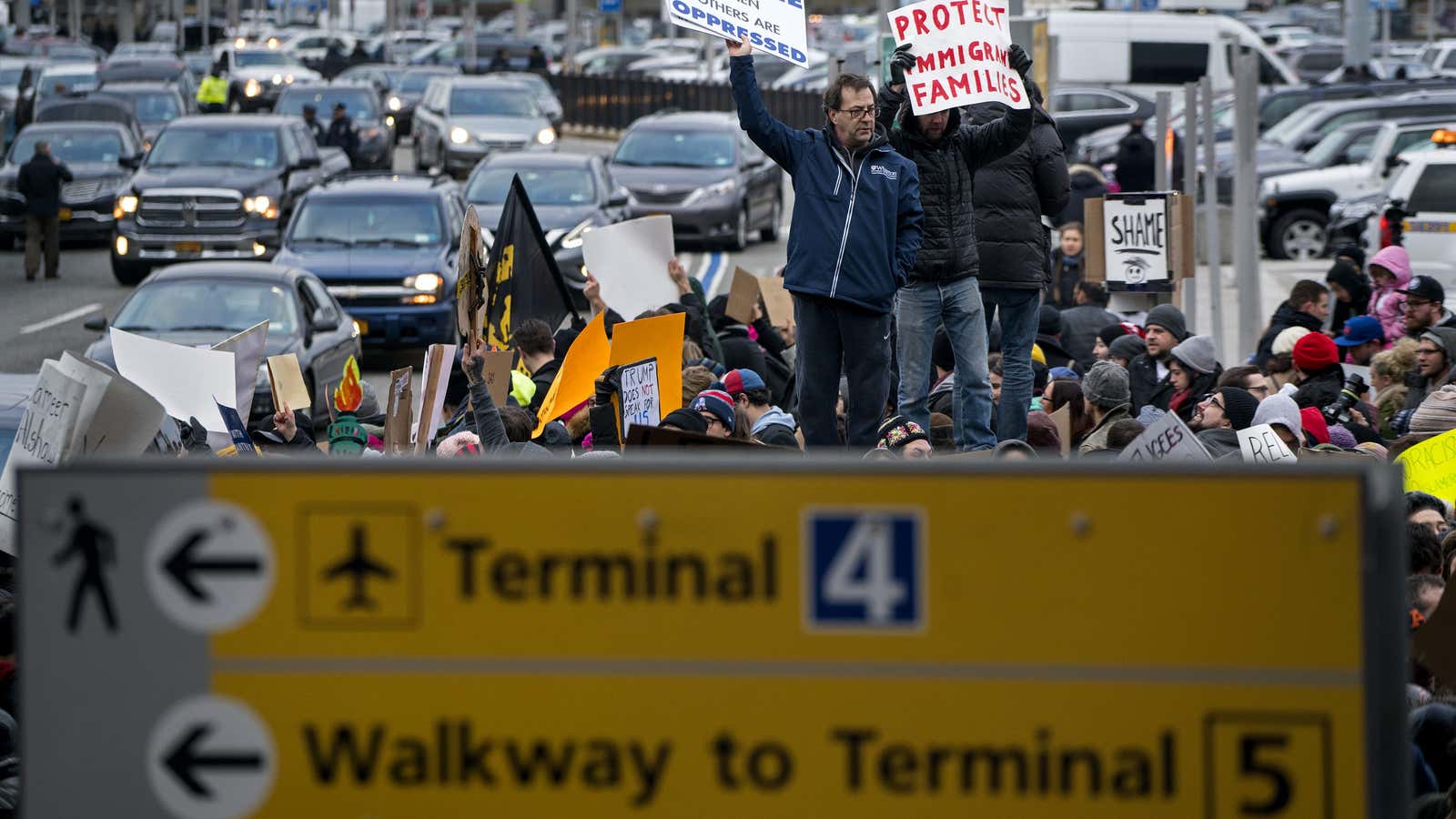US president Donald Trump’s stated goal in signing an executive order restricting travel to the US was to stop terrorists from entering the United States. But already, the order is taking a toll on families, students, and people who have helped the United States in its wars in the Middle East.
People from seven different Muslim-majority countries are temporarily banned from entering the US: Iraq, Iran, Syria, Sudan, Somalia, Yemen, and Libya. As protests have broken out around the country, a federal judge in Brooklyn this evening issued an emergency stay on the executive order, responding to a lawsuit brought by the American Civil Liberties Union on behalf of two Iraqi men who were detained at JFK International Airport in New York. The decision applies to detainees stopped at airports, saying they can’t be forced to return to where they traveled from, but its broader implications remain unclear.
The State and Homeland Security departments will apparently have the discretion to admit people on a case-by-case basis, but there are reports of chaos at airports as officials figure out how to implement the order. Spokespeople have said the ban extends to permanent residents and dual citizens.
A flood of media reports and social media posts are starting to put human faces to the fallout from president Trump’s action. Here’s a sample:
In San Francisco, an Iranian mother who has not seen her son in six years could not be reunited with him as he was turned away, according to the San Francisco Chronicle.
Reuters reports that a Syrian family with US visas was refused entry on a flight from Paris to Atlanta.
The Los Angeles Times reported that a teaching hospital in Ohio is canceling offers of residencies in anticipation of Trump’s anti-immigration actions.
Oscar-nominated director Asghar Farhadi won’t be able to attend the Academy Awards in February, and a German member of parliament who is also Iranian is blocked from travel to the US, according to German media.
New York Times Tehran bureau chief Thomas Erdbrink has been speaking to Iranians affected by the ban:
A member of the UK parliament says he will not be let into the US:
Some have speculated that legendary UK runner Mo Farah would be banned as well:
Many are tweeting about their friends and their family members who will be affected by the order using the hashtag #MuslimBan:
